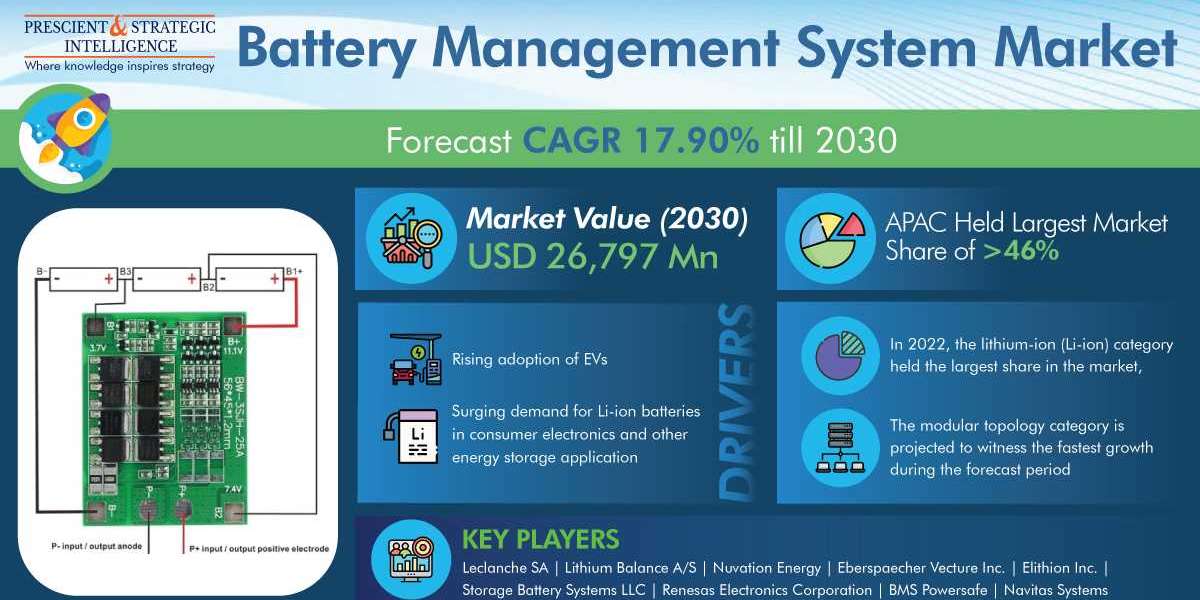A number of factors, such as the surging demand for electric vehicles (EVs) and the rising need for rechargeable batteries in electronic appliances, are set to drive the battery management system market at a CAGR of 15.0% in the foreseeable period (2021–2030). According to PS Intelligence, the market size is expected to reach $22,279.6 million by 2030 from $5,661.0 million in 2020. The BMS looks after the entire functioning of a battery, including its charge level, operating temperature and voltage, and efficiency.
One of the prime factors propelling the market growth is the surging adoption of EVs. Due to the existence of a large number of conventional vehicles, carbon emissions across the globe have significantly increased in recent decades. As per Our World in Data, the transportation industry produced 16.2% of the global greenhouse gas emissions in 2018. The emissions can be reduced with the use of EVs as they don’t burn gasoline or diesel. Thus, with the increase in the production of EVs, the demand for BMS is surging.
Similarly, the battery management system market is being propelled by the rising adoption of consumer electronics. With the increasing disposable income of the populace, especially in developing countries, sales of smartphones, tablets, laptops, digital cameras, personal digital assistants, and other gadgets are surging. This is leading to the rising procurement of BMSs by consumer electronics companies as this device plays a key role in controlling and optimizing the functioning of rechargeable batteries.
The battery type segment of the battery management system market is classified into lithium-ion (Li-ion), nickel, lead–acid, and others. Among these, the Li-ion category accounted for the largest share in the market in 2020, and it is also expected to witness the fastest growth during the forecast period. This is ascribed to the increasing demand for Li-ion batteries due to their long lifecycle, low maintenance, high energy density, and better resilience. Additionally, these batteries are eco-friendly as they contain low levels of toxic heavy metals than other types.
Additionally, the battery management system market is categorized into automotive, industrial, consumer electronics, telecommunications, aerospace defense, and others, based on vertical. Among these, the automotive category is projected to witness the fastest growth in the coming years. This can be attributed to the increasing deployment of EVs across the globe. Several governments are introducing guidelines to encourage the production and sale of EVs. Since BMSs are vital parts of these vehicles, the market in this category will grow with the surging adoption of such new-energy vehicles.
Geographically, the Asia-Pacific (APAC) battery management system market held the largest share in 2020, and it is also projected to record the highest CAGR during the forecast period. This can be attributed to the fact that China has been the leader in the global EV industry. As per the Organisation for Economic Co-operation and Development (OECD), 3.1 million electric cars were operational globally in 2018, among which 1.48 million were in China alone. Moreover, regional countries are taking several steps to increase the adoption of EVs in order to diminish the greenhouse gas emissions.
Thus, the surging adoption of EVs will accelerate the market growth in the foreseeable future.








